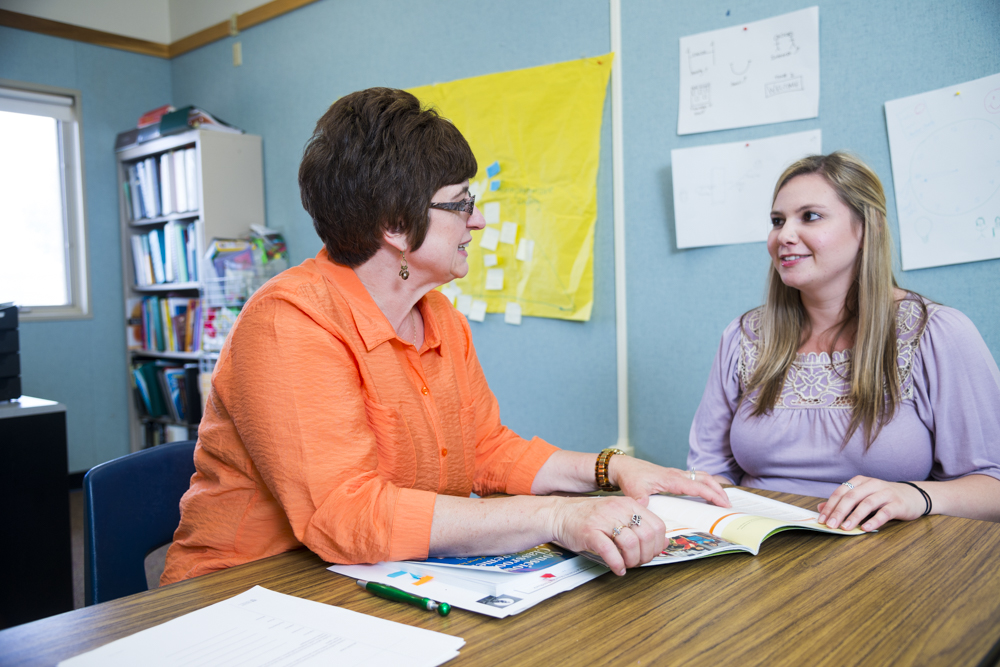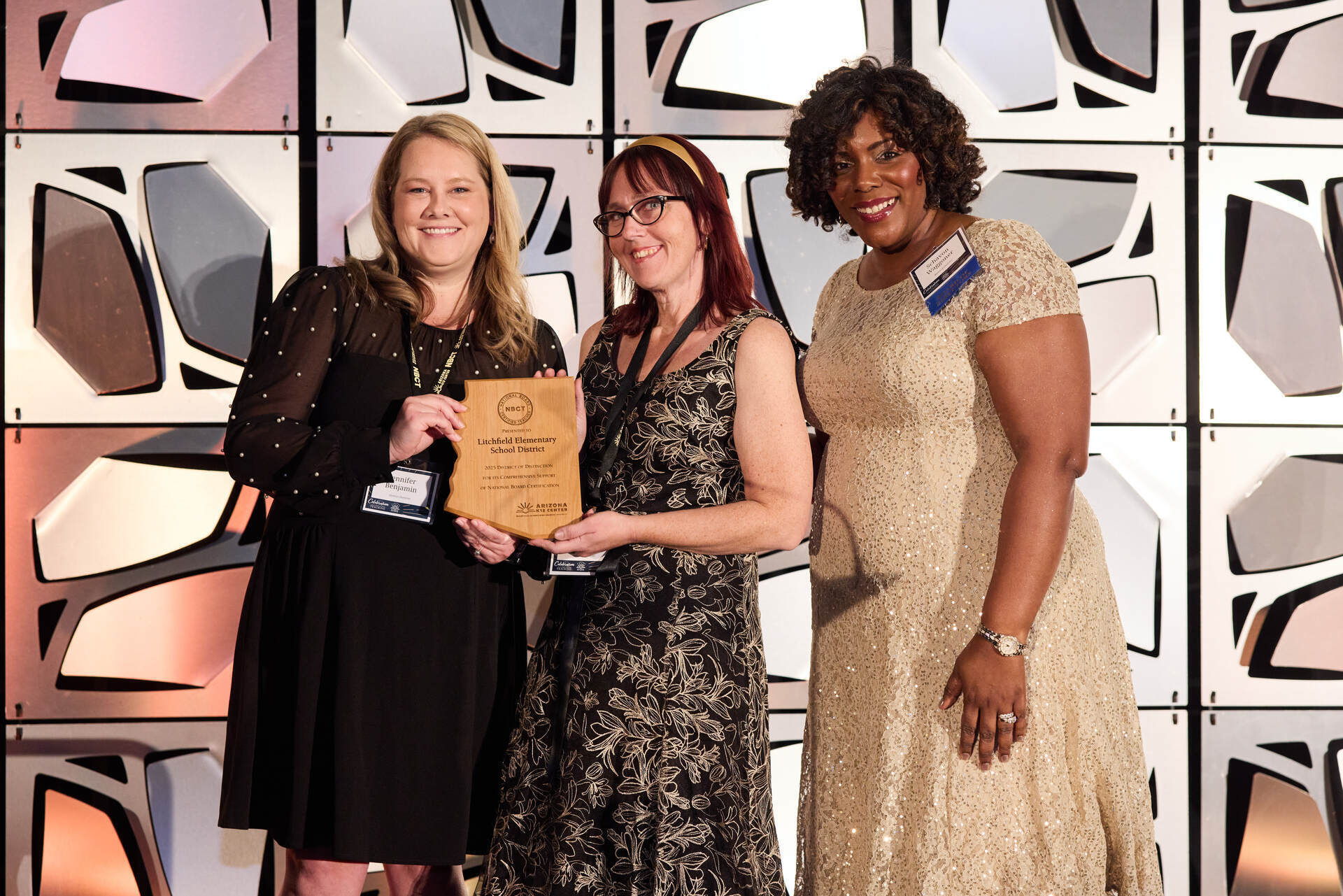February 23, 2016
What Your Principal Really Thinks of You
Arizona administrators share their thoughts about evaluations.
In Arizona’s current educational climate, students aren’t the only one facing higher expectations and rigorous formal evaluations. Over the last decade, educator evaluations have become more systemized, and the heat is on for teachers to impress their administrators by scoring high on assessments featuring rubric-based teacher observations and documenting student achievement and growth. And though educators are used to operating in a pressure cooker-like atmosphere, it’s easy to see how these high stakes could affect campus climate, teacher performance and overall school success.
We chatted up two Arizona school principals to get the truth on what it’s like to implement instructor evaluations. Shelley Isai is the principal at Canyon Ridge, a K-8 School in Surprise. She holds her doctorate of education in innovation in leadership from Arizona State University and a master's in educational leadership and administration from Northern Arizona University. Molly Garcia is the principal at Luke K-8 school in Glendale. She received her master's in supervision and leadership and her bachelor's of education in K-12 ESL and bilingual education with a minor in English from the University of Phoenix. Both principals’ campuses are in the Dysart Unified School District.
What do you most look forward to when completing an evaluation?
Isai: Evaluations are a great time to collaborate on a full lesson cycle with teachers. I most enjoy the pre- and post- conferences. The pre-conference allows me to see the creative side of my teachers and how they think students will best understand the material. This time also allows me to collaborate with the teacher and support them with ideas regarding best practice, like how to infuse technology or how to assess in action. The post-conference provides the opportunity to see how teachers are determining student success. I look forward to seeing the student work product and hearing teachers analysis and whether it met the desired outcome.
Garcia: Participating in our evaluation cycle is one of the most beneficial and impactful aspects of an administrator’s job. My teachers are my partners. Evaluations allow us a structure to work as a team to impact instructional practices and have a laser-like focus on how to better ourselves for the number one reason we are here — student success.
Evaluations also give me a chance to effectively communicate all of the teacher’s strengths and hard work that they put in daily!
What do you most dread?
Isai: Doing the ratings. Sometimes I get to the rating part and find I need more information in the sub-domain. This creates a scenario where, at times, I need to go back and add evidence. However, this can have the benefit of meeting with the teacher again — which is always great.
Would you rather observe a lesson that the teacher has delivered time and again (and knows like the back of his or her hand), or would you rather see them try something new and take a risk?
Garcia: I love it when my teachers take a risk and teach a standard or practice that they want genuine feedback on; it shows a genuine desire to transform their instruction for the betterment of our students. I find most of my teachers choose to take a risk, and it is the most inspiring component within our evaluation cycle in my district because I feel like my teachers know they are supported 100 percent of the way.
Isai: Honestly, I like to see both. Teachers grow more when I observe a new lesson where they are taking risks, as they can have immediate feedback. This may help them to more easily work out something that may need to be refined. On the other hand, it is always nice to see teachers be able to showcase something that is effective that they have developed that works and yields results.
Many teachers go on the defensive while being evaluated. How do you combat this?
Isai: I make sure to let teachers know that I want to gather as much evidence as I can to get them the highest rating possible. I share the rubric with them and let them know what a "distinguished" rating looks like. I offer to plan with them throughout the year if they want support getting to a certain point. Then I make sure I am frequently in classes giving feedback.
Garcia: I want my teachers to know and believe that I am there to support them in transforming the lives of our students. If an area of growth has been identified, then we attack it with support; we go to solution mode and talk about what we will do to support them in that area of their professional practice. I have had a 100-percent success rate with this approach. Every teacher sets out to be the best they can be every day, and it is our job to help them reach that goal.
You walk into a classroom and sit down. In the first five minutes, do you know whether or not the observation will be a positive one?
Isai: Most of the time. A great lesson is anchored with a good essential question or a strong objective. In a great lesson, the teacher has a hook that grabs students' interest from the beginning. However, this is not an absolute rule. Sometimes the lesson can start rocky and improve. Most times where you can really tell how the lesson will go is by looking at the lesson plan in the pre-conference.
What’s it like to watch an educator grow in strides?
Garcia: It is one of the most rewarding feelings as a principal to watch your teachers blossom! Teaching is one of the most difficult professions and such a balancing act of high rigorous content standards with engagement that will ignite passion in fire in our students. Sometimes this art takes time, and modeling effective strategies is the best tool we can provide our teachers. I find myself making time to model in a teacher's classroom, conferencing with them weekly, and discussing research based instructional practices. When this all comes together and we see growth in the classroom, you cannot help but smile from ear to ear. We have to live off the premise that our teachers are the number one determining factor of student success! They are our biggest asset in ensuring students succeed and are ready for all the world has to offer!
What do you find are your most commonly recommended areas of improvement? Why do you feel this is such a common weak spot for today’s teachers?
Isai: Questioning techniques are often an area of refinement. On our rubric, to achieve a "distinguished" rating, students need to be initiating academic discussions and questions. In many classrooms, teachers are asking great questions and providing appropriate wait time, etc. However, it should be the students, not the teachers, who are driving the questions. This can be countered with professional development in inquiry-based learning, teaching students about different levels of questions and having them explore topics they are interested in knowing more about.
Garcia: It depends on the educator and where they are in their instructional journey, but many of our conversations are about how to move the dialogue and questioning to a level of student ownership; where the students are promoting and maintaining the conversation at high levels, with the teacher guiding their thinking.
Do you treat evaluations for veteran and rookie teachers differently?
Garcia: I’m not sure there is anything different that I do as a principal when differentiating between the two. I love the insights from both sets of teachers, and I encourage a partnership between the two and love promoting growth among all teachers.
Isai: I don’t know if there is really a hard answer for this. I have seen rookies shine and veterans with very status quo lessons. It is more teacher dependent than experience based.
Any particular evaluation that stands out?
Garcia: One year, one of my first year teachers left the conference and in a whisper voice said, "Thank you so much for this pre-conference, it was the best one I have ever had — remember, she was a first year teacher, so it was the only one she ever had. She then continues to say, “And I promise, I won't tell anyone you are cheating by giving me strategies to use!" I had to laugh out loud and remind her that my role as an administrator is to be her number one support, and that in education that is called collaboration, not cheating. I seriously LOVE my job. And I am happy to say, this teacher is one of the best I have had the privilege of working with!
Isai I have a teacher that struggled with classroom management. The crux of this was poor planning. I worked with her and asked her team to support her, too. They did. This year, due to her proactive planning and feedback, her students are making great gains, as evidenced by test scores. The teacher’s evaluation ratings have come up as well. As an administrator, this puts a smile on my face and warms my heart.
The takeaway from these administrators’ insight?
Administrators’ work and passion is to truly be on our side, and coaching his or her teachers is probably one of the most loved part of your principal’s job, too.
“Their success is my success and their failure is mine as well,” Isai concludes.
The next time you schedule your observation and conferences, keep those nerves in check and embrace eval cycles for the priceless tool that they are — a team effort at establishing goals and being open to support.











